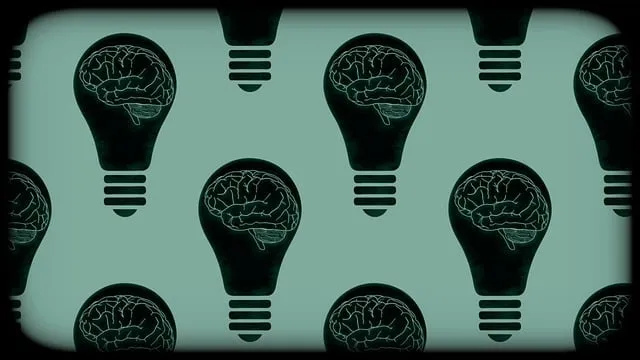Media portrayal significantly shapes societal perceptions of mental health, either perpetuating harmful stereotypes or fostering understanding and empathy. Organizations like Parker Kaiser Permanente (PKP) behavioral health services aim to challenge these stereotypes through accurate, compassionate media representation. PKP leads in transforming media's depiction of mental illness by advocating for realistic portrayals, implementing policy changes, and offering holistic emotional healing techniques. By educating the public about various conditions, encouraging self-esteem improvement, and preventing burnout among healthcare providers, PKP empowers individuals to overcome mental health challenges and reduces stigma, aligning with their behavioral health services. Media, when used authentically, can significantly contribute to depression prevention and overall mental wellness through diverse storytelling and supportive environments.
“The media’s representation of mental illness can significantly shape public perception and understanding of behavioral health. This article explores the impact of media portrayal, with a focus on the innovative strategies employed by Parker Kaiser Permanente in addressing this challenge. We delve into common stereotypes, misconceptions, and their effects on mental health attitudes. By analyzing successful initiatives like those at Parker Kaiser Permanente, we present actionable solutions to enhance accurate mental illness depictions. Furthermore, we emphasize the critical role of media in fostering empathy, diversity, and support for individuals battling behavioral health struggles.”
- Understanding the Impact of Media Portrayal on Mental Health Perception
- The Current State: How Parker Kaiser Permanente Addresses Behavioral Health in Media
- Identifying Stereotypes and Misconceptions: A Closer Look at Common Representations
- Strategies for Positive Change: Solutions to Enhance Accurate Mental Illness Depictions
- Encouraging Diversity, Empathy, and Support: The Role of Media in Shaping Attitudes
Understanding the Impact of Media Portrayal on Mental Health Perception

Media portrayal plays a pivotal role in shaping societal perceptions about mental health, which has profound implications for individuals struggling with these issues. The way mental illness is depicted in films, television shows, and news media can either perpetuate harmful stereotypes or foster understanding and empathy. Studies have shown that positive and accurate media representation can significantly enhance public awareness and reduce stigma associated with seeking behavioral health services, such as those offered by Parker Kaiser Permanente.
When media portrays mental health issues realistically and compassionately, it contributes to a more inclusive and supportive environment. This is particularly crucial for developing effective Mental Health Education Programs Design and Public Awareness Campaigns Development. By challenging stereotypes, these representations encourage open conversations about mental wellness, prompting individuals to seek help without fear of judgment. Such progressive portrayals can also inspire advocacy efforts and influence policy changes, including the promotion of more robust Mental Health Policy Analysis and Advocacy initiatives.
The Current State: How Parker Kaiser Permanente Addresses Behavioral Health in Media

Parker Kaiser Permanente stands as a beacon of hope in the current state of mental illness representation in media. Recognizing the profound impact of media on public perception, the organization actively collaborates with industry leaders to shape narratives around behavioral health. Through comprehensive mental health policy analysis and advocacy, they champion accurate and empathetic portrayals of individuals navigating emotional healing processes. By integrating emotional healing processes into their media strategies, Parker Kaiser Permanente promotes understanding and destigmatizes mental health struggles.
This commitment extends to mood management techniques, where they offer accessible resources and support systems that empower individuals to take charge of their psychological well-being. Their initiatives reflect a multifaceted approach, addressing not just the symptoms but also the underlying social constructs that influence perceptions of mental illness. By doing so, Parker Kaiser Permanente fosters an environment conducive to open dialogues about behavioral health, ultimately aiming to revolutionize media representation and enhance societal support for those grappling with mental health challenges.
Identifying Stereotypes and Misconceptions: A Closer Look at Common Representations

Media representation of mental illness often perpetuates harmful stereotypes and misconceptions, creating a challenging environment for those seeking support. Common portrayals in movies, TV shows, and even news coverage frequently reduce complex conditions to simplistic narratives, focusing on extreme symptoms or misrepresenting recovery timelines. For instance, the idea that someone with depression simply “needs to cheer up” is a pervasive yet damaging stereotype. These misconceptions can discourage individuals from reaching out for help, as they may fear judgment or misunderstanding.
At Parker Kaiser Permanente behavioral health services, we recognize the significant impact of media influence on public perception. Our approach emphasizes the importance of promoting accurate and nuanced representations that reflect the diverse experiences of those living with mental illness. By educating audiences about the complexities of conditions like anxiety, depression, and schizophrenia, we aim to foster empathy and reduce the stigma surrounding behavioral health. Adopting Mind Over Matter principles and focusing on self-esteem improvement can empower individuals to challenge these stereotypes and embrace their journeys towards recovery.
Strategies for Positive Change: Solutions to Enhance Accurate Mental Illness Depictions

Media has a significant influence on shaping societal perceptions and attitudes towards mental illness. To drive positive change, it’s crucial to implement strategies that enhance accurate depictions. One such solution is encouraging collaboration between media professionals and experts like those from Parker Kaiser Permanente behavioral health services. By integrating real-world insights and experiences, stories can become more nuanced and authentic, challenging stereotypes and promoting empathy.
Additionally, focusing on diverse representations of mental illness can help broaden understanding. This includes showcasing various conditions, such as anxiety, bipolar disorder, or schizophrenia, beyond simplistic tropes. Initiatives aimed at boosting confidence among individuals with mental health challenges, coupled with burnout prevention strategies for healthcare providers, can foster supportive environments. By integrating these approaches, media can play a pivotal role in Depression Prevention and promoting overall mental wellness in society.
Encouraging Diversity, Empathy, and Support: The Role of Media in Shaping Attitudes

Media plays a pivotal role in shaping societal attitudes towards mental illness, offering both challenges and opportunities for promoting understanding and support. By diversifying representations of individuals with mental health conditions, media can foster empathy and challenge stereotypes. This is where organizations like Parker Kaiser Permanente behavioral health services can lead by example, showcasing the human experience behind these conditions through authentic storytelling.
Incorporating diverse narratives not only highlights the range of experiences but also encourages viewers to see beyond surface-level perceptions. Portraying characters who exhibit resilience and seek help can be instrumental in normalizing conversations about mental well-being. This shift in media portrayal can inspire individuals to open up, seek support, and understand that recovery is possible. Moreover, it can contribute to a culture of care and compassion, especially when combined with educational initiatives like Stress Management Workshops Organization programs focused on Depression Prevention and Stress Management.
Media has a profound impact on shaping societal perceptions of mental illness. By challenging negative stereotypes and promoting accurate, diverse representations, we can foster greater empathy and support for individuals facing mental health challenges. As demonstrated by Parker Kaiser Permanente’s behavioral health services in media, proactive initiatives can drive positive change, ultimately contributing to a more inclusive and understanding society. Enhancing mental illness depictions is not just about representation; it’s about revolutionizing attitudes and ensuring everyone receives the care and compassion they deserve.






